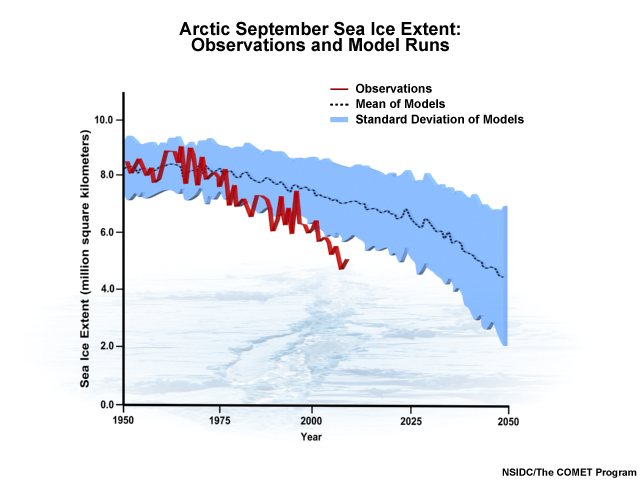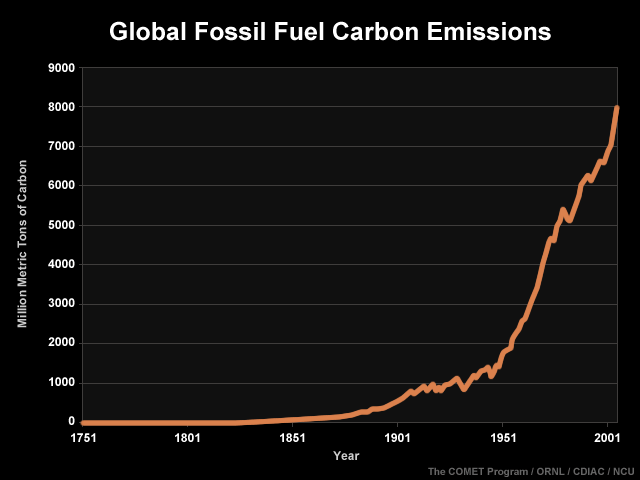It's Worse Than We Think

On the other hand, some climate scientists think IPCC has been far too conservative. They believe warming in the next century will be much greater than the IPCC assessments indicate, and there is some evidence to support this. For example, Arctic sea ice is melting much faster than scientists predicted. Also, actual fossil fuel emissions in recent years have exceeded all but the highest IPCC projections.

Since 2000, they have grown four times faster than in the 1990s. Some argue that the IPCC near-future assumptions about global energy use are too optimistic. A recent study also concludes that the IPCC estimates were too rosy with regard to how quickly developing countries will be able to afford technologies to reduce greenhouse gas emissions.
Scientists in this camp also say sea levels may rise far more than we anticipate because our calculations aren't taking into account the unexpectedly large melting and disintegration of the Greenland and Antarctic Ice Sheets. They also point out the last IPCC report was limited to already-published and peer-reviewed research, and the conclusions had to be reached by consensus. This is bound to produce a cautious, conservative estimate for the future, they say.